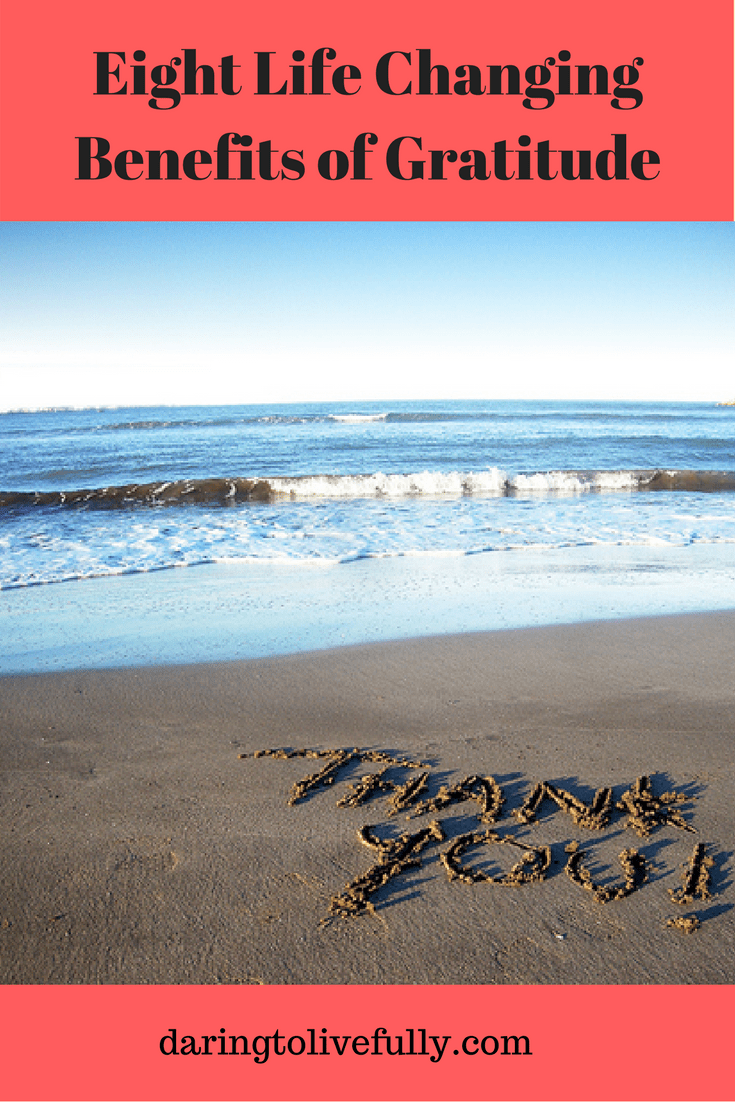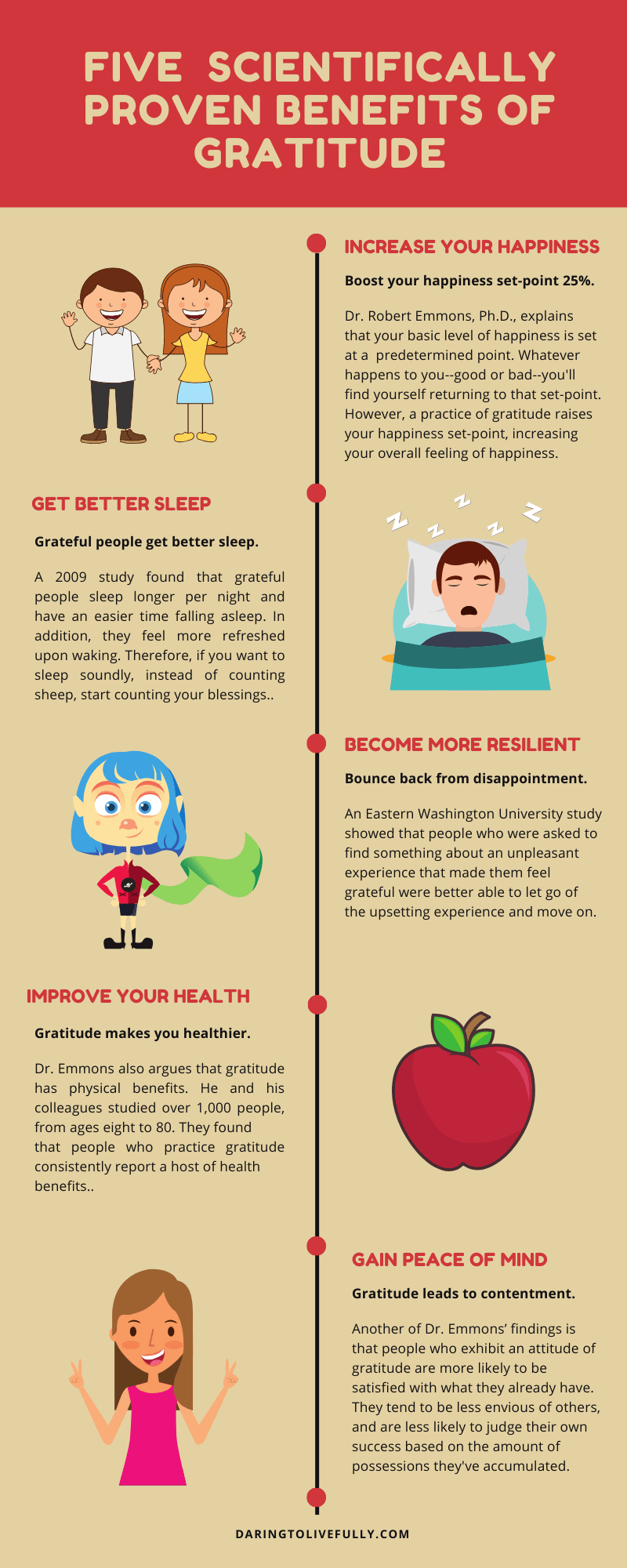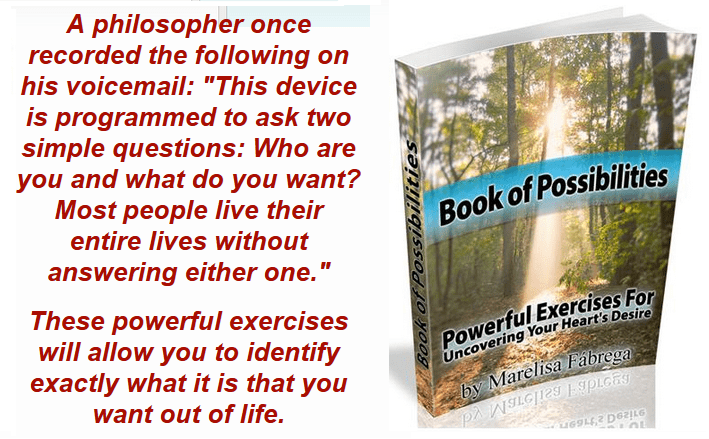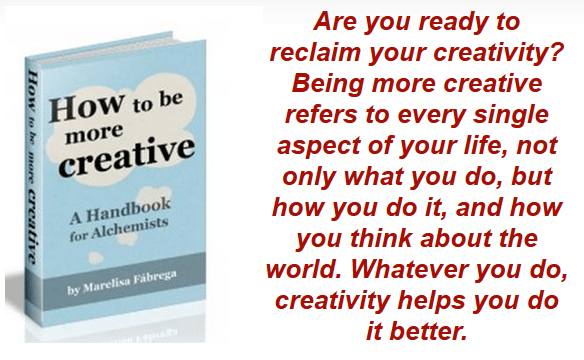
Being grateful is more than just good manners.
Having an attitude of gratitude is beneficial for every aspect of your life: being grateful improves your health, your mood, your relationships, your career satisfaction, and on, and on.
If you’re looking for reasons why you should be grateful this Thanksgiving, and every other day of the year for that matter, below you’ll find eight life changing benefits of gratitude.
 1. Gratitude Can Help You to Create Healthy Habits. Dr. Robert Emmons, Ph.D., the world’s foremost expert on gratitude, explains that grateful people take better care of themselves than their less grateful counterparts do. This includes adopting healthy habits, such as eating more nutritious meals and getting regular physical examinations. In addition, one study found that if a person keeps a gratitude journal it’s more likely that they’ll exercise on a regular basis.
1. Gratitude Can Help You to Create Healthy Habits. Dr. Robert Emmons, Ph.D., the world’s foremost expert on gratitude, explains that grateful people take better care of themselves than their less grateful counterparts do. This includes adopting healthy habits, such as eating more nutritious meals and getting regular physical examinations. In addition, one study found that if a person keeps a gratitude journal it’s more likely that they’ll exercise on a regular basis.
Therefore, if you’ve been meaning to improve your eating habits, start an exercise program, or create other habits that will allow you to take better care of yourself, making a list of the things that you’re grateful for will make it easier for you to make those habits stick.
2. Thankfulness Can Help You Achieve Your Financial Goals. Being grateful can even help you to create positive spending habits. A group of researchers divided participants into three groups. Each group was asked to write about an experience that generated an emotion.
- The first group was asked to write about an experience that made them happy.
- The second group was asked to write about an experience that made them feel grateful.
- The third group was asked to write about an experience that didn’t really generate much emotion (something they felt neutral about).
After completing the writing exercise, participants were asked to choose between the following two options:
- Getting some money now: or
- Getting more money at a future date.
The better choice, of course, was to wait and get more money in the future. Of the three groups, participants in the group that wrote about an experience that generated gratitude were much more likely to delay gratification and wait for the larger amount.
3. Increase Your Happiness Set Point by 25% by Showing Gratitude. In his book, “Thanks!: How the New Science of Gratitude Can Make You Happier ”, Dr. Emmons explains that your basic level of happiness is set at a predetermined point. This means the following:
- If something good happens to you during the day, your happiness level rises momentarily, but then it returns to your happiness set point.
- Likewise, if something bad happens to you during the day, your happiness level drops. However, it soon goes right back up to its previous level.
Nonetheless, there are things you can do to not just momentarily alter you levels of happiness, but to change your set point all together. One of these is being grateful. A practice of gratitude raises your happiness set-point, so you can remain at a higher level of happiness on a continuous basis, regardless of outside circumstances.
In addition, your happiness set point can go up by a whopping 25%. Imagine being 25% happier than you are now as a matter of course. I wrote about this in my article for the Change Blog, “How Gratitude Can Change Your Life”.
4. Being Grateful Helps You Sleep Better. A 2009 study found that grateful people sleep longer per night and have an easier time falling asleep. In addition, they feel more refreshed upon waking. Therefore, if you want to sleep soundly, instead of counting sheep, start counting your blessings.
5. Gratitude Can Improve Your Romantic Relationship. Amie M. Gordon of the Department of Psychology at the University of California led a series of studies that looked at how appreciation and gratitude influenced the relationship satisfaction and stability of committed couples.
Along with her colleagues she created something called the Appreciation in Relationships (AIR) scale. The scale captures how much partners felt appreciated and how much they exhibited appreciative behaviors.
The results of the studies indicate that having an attitude of gratitude and appreciation has a significant positive impact on relationship satisfaction and stability. Here are two additional findings:
- Appreciative partners were more committed to the relationship than those who were non-appreciative.
- Appreciative partners were more likely to receive appreciation in return. That is, when a person feels valued by their partner they’re more likely to show appreciation toward the other person in return.
6. Being Grateful Makes You More Resilient. One of the best predictors of happiness and success is your level of resilience. That is, your ability to bounce back from setbacks and disappointments. And one way to become more resilient is through gratitude.
In a study conducted at Eastern Washington University, participants were asked to recall an unpleasant open memory: a betrayal, victimization, or other upsetting experience. They were then divided into three groups:
- The first group was told to write for twenty minutes on an issue that was unrelated to their unpleasant memory.
- The second group was told to write about their unpleasant experience.
- The third group was also told to write about their unpleasant experience. However, they were told to focus on the positive aspects of the experience. That is, they were asked to discover what about the unpleasant experience made them grateful.
The results of the study showed that the third group demonstrated more closure and less unpleasant emotional impact than the other two groups. In other words, redeeming the unpleasant experience with gratitude made it less painful and upsetting.
In addition, the participants who found reasons to be grateful reported less intrusive memories, such as ruminating about why it happened or how it could have been prevented. Gratitude can help you to get over upsetting experiences, and it can help you to move on.
7. Improve Your Health by Giving Thanks. Dr. Emmons also argues that gratitude has not only emotional benefits, but physical benefits as well. He and his colleagues have studied more than one thousand people, from ages eight to 80, and have found that people who practice gratitude consistently report a host of health benefits. Here’s three of them:
- They have stronger immune systems.
- They’re less bothered by aches and pains
- They have lower blood pressure
One way in which gratitude makes you healthier is by reducing stress. The link between stress and several leading causes of death—such as heart disease and cancer—have been well documented. Emmons says the following:
“Gratitude research is beginning to suggest that feelings of thankfulness have tremendous positive value in helping people cope with daily problems, especially stress”.
The bottom line is, if you want better health, focus on the things you’re grateful for.
8. Gratitude Gives You Peace of Mind. Another of Emmons’ findings is that people who are grateful have greater peace of mind. Here are some of the ways in which this inner contentment is demonstrated:
- People who are grateful tend to be less materialistic than those who are not.
- Those who give thanks are less likely to judge their own success—as well as the success of others—based on the amount of possessions that they have accumulated.
- Grateful people are less envious of others.
- People who exhibit an attitude of gratitude are more likely to be satisfied with what they already have.
This is in line with what the world’s great spiritual teachers have always said: give thanks.

Conclusion
The eight benefits of gratitude explained above are just the tip of the iceberg. Adopting a grateful orientation toward life truly can perform miracles in your life. Live your best life by being grateful.





Related Posts:




 Marelisa Fabrega is a lawyer and entrepreneur. She holds a Bachelor of Science in Business Administration from Georgetown University in Washington, D.C., as well as a Juris Doctor from the Georgetown University Law Center. You can learn more about her
Marelisa Fabrega is a lawyer and entrepreneur. She holds a Bachelor of Science in Business Administration from Georgetown University in Washington, D.C., as well as a Juris Doctor from the Georgetown University Law Center. You can learn more about her 






Comments on this entry are closed.
Nice article Marelisa; you always write wonderful stuff. I don’t know if I come from the position of gratitude but things often work out well for me and I recover quickly from disappointments. I’ve never thought about creating a journal, and since I’m journaling so many other things now I probably won’t, but it’s not a bad idea. Too bad none of it helps me sleep better though. 🙂